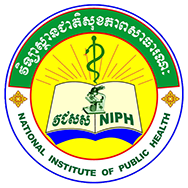International research alliance aims to translate new cervical cancer screening strategy to low-income settings
Ghent, Belgium – October 4, 2021 – An international research alliance, led by Ghent University, announces the five-year Horizon 2020 CHILI project on ‘A community-based HPV screening implementation in low-income countries’ to develop a cervical cancer screening strategy in compliance with the most recent WHO guidelines and tailored to the context and needs of four low- and middle-income countries: Ethiopia, Uganda, Mozambique and Cambodia. The strategy includes a new cervical cancer screening test which is currently being developed in ELEVATE (EU grant agreement No 825747), another Horizon 2020 project, and combines self-sampling with a low-cost, portable measurement device, detecting both the human papilloma virus – the main cause of cervical cancer – and cancer biomarker proteins. The test will be adapted to ensure its applicability and affordability on a large scale in these four countries.
Cervical cancer is the 4th most common cancer in women worldwide. Early detection of precancer has shown to be successful in reducing cancer incidence and mortality. However, there are substantial inequalities in terms of cervical cancer burden with up to nine in ten women who die from cervical cancer living in low- and middle-income countries. A global implementation of screening services is hampered by differences between countries with regard to resources, availability and quality of preventive strategies.
Our vision is a world where all women receive equal opportunities to protect themselves against preventable diseases. The CHILI consortium aims to comprehend current screening practices and challenges to define and implement new strategies, including the ELEVATE screening test, that meet the conditions of the local context and the preferences of the local women. We aim to assure sustainability and integration within the local health system while implementing and evaluating the new screening strategy in order to support the countries to move towards universal screening.
The CHILI project is receiving funding from the European Union’s Horizon 2020 Framework Programme for Research and Innovation under grant agreement No 964418 and brings together a multidisciplinary team of social scientists, health economists, biosensor experts and industry partners from: Universiteit Gent (Belgium), Universität Greifswald (Germany), Universidade NOVA de Lisboa (Portugal), Jimma University (Ethiopia), National Institute for Public Health (Cambodia), Universidade Eduardo Mondlane (Mozambique), UVRI-IAVI HIV Vaccine Program (Uganda), Universitat Rovira I Virgili (Spain), Fraunhofer-Gesellschaft zur Förderung der Angewandten Forschung e.V. (Germany), Labman Automation Ltd (United Kingdom), mircroLIQUID (Spain) and Fundico (Belgium).
This press release can be downloaded at https://www.alphagalileo.org/Item-Display/ItemId/213200
Contact:
For more information: Dr. Heleen Vermandere (Heleen.Vermandere@UGent.be) - https://elevate-hpv.com/
